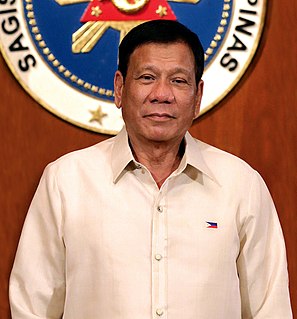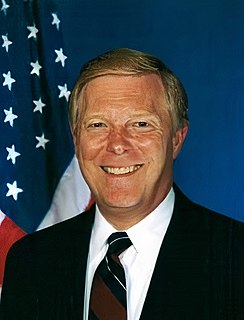A Quote by Rowan Williams
A flourishing, morally credible media is a vital component in the maintenance of genuinely public talk, argument about common good.
Related Quotes
Ultimately, the current argument is "not having net neutrality will hurt innovation," and you can make that argument, but I would rather make the public good argument, which is not just about innovation or nurturing new companies that will add to the nation's GDP, it's actually about creating a democratic public sphere.
The notion that somehow or another they'll (Iran) put it in a picnic basket and hand it to some terrorist group is merely an argument that may be convincing to some people who don't know anything about nuclear weapons. I don't find that argument very credible, I'm not sure that people who make it even believe in it. But it's a good argument to make if you have no other argument to make. The fact of the matter is, Iran has been around for 3000 years, and that is not a symptom of a suicidal instinct.
There's no necessary connection between maximizing social utility or economic wealth and creating a flourishing democracy. The first does not guarantee the second. The only way to create a flourishing democracy is to find ways to reason together about the big questions, including hard questions about justice and the common good, to reason together about these questions so that we as citizens can decide how to shape the forces that govern our lives.
There are no general-interest media that all of us can tap into. I'm not a good person to talk to about social media. I just avoid it. I'm suspicious also of the culture of venting. But the bigger question is, How can we in this media world have a genuine civic conversation? I mean, look at Franklin Roosevelt. He had these radio talks that all Americans listened to, and there was a common civic conversation that came out of it.
It's much better to talk about the media as a system of propaganda and abuse, of manufactured consent, than it is to claim it's some kind of democratizing force that is not responsible for what it does. The notion that the media simply reflects reality is an argument that justifies its flight from responsibility.
I have a good Muslim friend who comes over to my house. Good guy; reads the Qur'an in Arabic. He comes over to my house and we talk about faith and we talk about things we have in common, but I can't shy away from the differences that we have. So I talk about why I'm not a Muslim and about the evidence that exists that show Christianity is true.
Talking about morality can be offensive. Morality is a politically incorrect subject. Many people are genuinely offended if someone speaks of morality and family values. It is okay if you talk about your sexual fantasies and deviances. This is called "liberation". But you would be frowned at if you talk about morality in public. Then you'd be accused of trying to impose your values on others.
Public values are not only under attack in the United States and elsewhere but appear to have become irrelevant just as those spaces that enable an experience of the common good are now the object of disdain by right-wing and liberal politicians, anti-public intellectuals and an army of media pundits.
People tend to assess the relative importance of issues by the ease with which they are retrieved from memory—and this is largely determined by the extent of coverage in the media. Frequently mentioned topics populate the mind even as others slip away from awareness. In turn, what the media choose to report corresponds to their view of what is currently on the public’s mind. It is no accident that authoritarian regimes exert substantial pressure on independent media. Because public interest is most easily aroused by dramatic events and by celebrities, media feeding frenzies are common
One of the most important virtues of the American character is our ability to approach the complexities that life presents us with common sense and decency, .. The considered judgment of the American people is not going to rise or fall on the fine distinctions of a legal argument but on straight talk and the truth. It is time for the president and the Congress to follow that common sense for the good of the country.
... an essential feature of a decent society, and an almost defining feature of a democratic society, is relative equality of outcome - not opportunity, but outcome. Without that you can't seriously talk about a democratic state... These concepts of the common good have a long life. They lie right at the core of classical liberalism, of Enlightenment thinking... Like Aristotle, [Adam] Smith understood that the common good will require substantial intervention to assure lasting prosperity of the poor by distribution of public revenues.




































